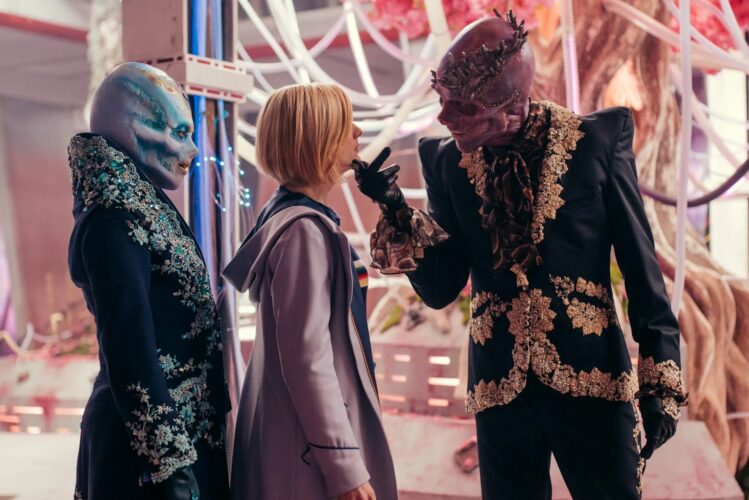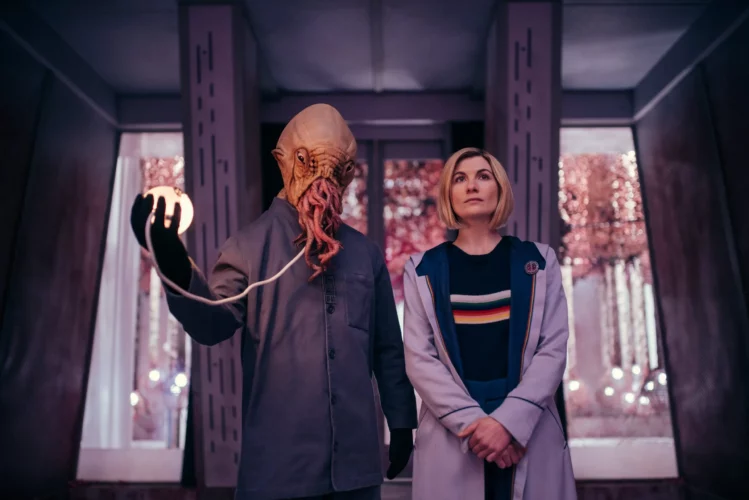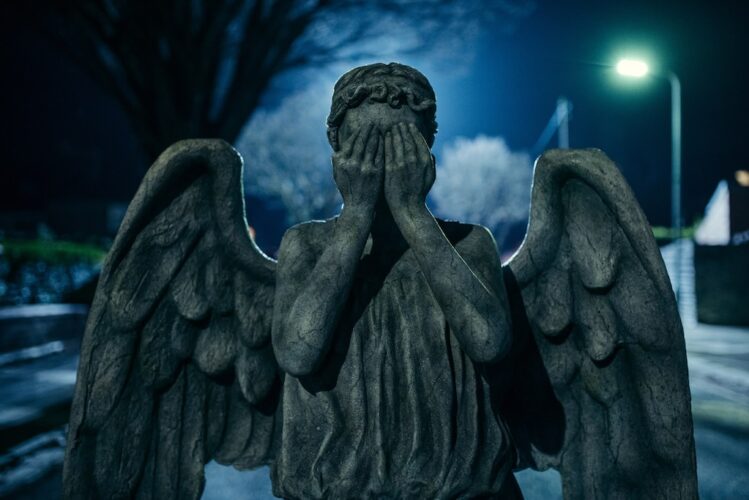At the Edge of Creation, Absolute Nothingness (The Vanquishers)

The week of The Vanquishers brought a unique blend of sounds and events to the airwaves and headlines. As audiences eagerly tuned in to witness the climactic conclusion of Doctor Who’s Flux arc, the charts resonated with an eclectic mix of musical offerings. The rhythmic beats of ‘Levitating’ by Dua Lipa and the catchy melodies of ‘Stay’ by The Kid LAROI and Justin Bieber dominated the pop charts, captivating listeners with their infectious energy. Meanwhile, the alternative rock scene saw the haunting melodies of ‘Heat Waves’ by Glass Animals captivate the hearts of music enthusiasts. In the realm of news, global conversations were sparked by breakthroughs in renewable energy as solar power reached a record-breaking milestone, illuminating the path towards a sustainable future. Simultaneously, the cultural landscape saw vibrant discussions on the impact of diverse representation in media, with thought-provoking films and television series driving conversations on inclusivity and social progress.
Against this backdrop, The Vanquishers premiered, inviting audiences to explore the intricacies of time and space while reflecting on the world they inhabited. When diving into the penultimate episode of a Doctor Who series, one typically expects a crescendo of narrative threads, a melding of character arcs, and a coherence that suggests the writers have been plotting a masterstroke from the outset. The Vanquishers, however, delivers a cacophony of convoluted storylines and rushed conclusions that feels more like a chaotic patchwork than a climactic resolution. Chibnall’s ambition to weave an intricate tapestry of storylines is evident, but the execution falters significantly. The multiple Doctors are a gimmick that overshadows rather than enhances the narrative, creating an experience akin to sketching a landscape while surfing a tsunami: it conveys a profound sense of hopelessness, futility, and the near-impossibility of achieving any meaning.
Central to this bleak meditation is the Doctor herself, whose quest for agency and resolution amidst the chaotic Flux is rendered futile by the very mechanisms of time and space that mock her efforts. Each victory is pyrrhic, each moment of hope ephemeral against the backdrop of a multiverse shaped by entropy and cosmic indifference, where endings are foregone conclusions and triumphs are mere illusions of progress. The return of fan-favorite characters, including Captain Jack Harkness (John Barrowman) and the Daleks emphasizes the toll of witnessing countless iterations of history and the futility of attempting to impose order or meaning. As the Doctor navigates the swirling currents of the Flux Jack disrupts conventional plans and expectations, while the Daleks capture the Time Lord characters and subject them to a continuous cycle of regeneration and re-capture, creating a nightmarish scenario where these characters repeatedly experience the trauma and pain of regeneration without the release of death.
The Daleks’ plan raises philosophical questions about the nature of mortality and immortality. The Daleks deny the Time Lords the ability to maintain a stable identity or sense of self. Their insidious influence extends beyond mere physical threats, penetrating the temporal fabric itself. Mortality, which is fundamentally tied to the progression of time from past to future, becomes murky.…







